INTRODUCTION:
MIRAGO 25MG contain mirabegron which belongs to a group of medicine called beta 3-adrenoceptor agonist (bladder muscle relaxant) which reduces the activity of an overactive bladder and treats the related symptoms. This medicine is used to treat the symptoms of an overactive bladder in adults such as urgency to empty your bladder, increased urinary frequency, not able to control when to empty your bladder (called urgency incontinence). It works by activating the receptor in the bladder, causing the bladder muscles to relax. It prevents frequent, urgent, or uncontrolled urination.
Always take MIRAGO 25MG exactly as your doctor has told you. This medicine must be taken with or without food. This medicine is strictly not recommended for use in children and adolescents under 18 years. Consumption of alcohol is not recommended during treatment with this medicine. Before taking this medicine tell your doctor if you have ever had kidney disease, heart disease, liver problems. Pregnant and breastfeeding women should consult their doctor before taking this medicine. The common side effects are tachycardia, urinary tract infections, nausea, constipation, headache, diarrhoea, dizziness.
USES OF MIRAGO 25MG:
Treat the symptoms of an overactive bladder in adults
HOW MIRAGO 25MG WORKS:
MIRAGO 25MG works by activating the receptor in the bladder, causing the bladder muscles to relax. It prevents frequent, urgent, or uncontrolled urination.
DIRECTIONS FOR USE:
Always take MIRAGO 25MG exactly as your doctor has told you. This medicine must be taken with or without food. Try to take this medicine at the same time each day. It should be swallowed whole with water. Do not crush or chew the medicine.
SIDE EFFECTS OF MIRAGO 25MG:
SERIOUS
• Irregular heartbeat (atrial fibrillation)
COMMON
• Increased heart rate (tachycardia)
• Infection of the structures that carry urine (urinary tract infections)
• Nausea
• Constipation
• Headache
• Dizziness
• Diarrhoea
RARE
• Swelling of the eyelid (eyelid oedema)
• Swelling of the lip (lip oedema)
• Swelling of the deeper layers of the skin caused by a build-up of fluid, which can affect any part of the body including the face, tongue or throat and may cause difficulty in breathing (angioedema)
• Small purple spots on the skin (purpura)
• Inflammation of small blood vessels mainly affecting the skin (leukocytoclastic vasculitis)
• Inability to completely empty the bladder (urinary retention)
HOW TO MANAGE SIDE EFFECTS:
Nausea:
Try taking this medicine with, or just after, a meal or snack and stick to simple meals and do not eat rich or spicy food.
Constipation:
Take fibre rich foods such as fresh fruit, vegetables and cereals, and drink plenty of water. Exercise more regularly.
Headache:
Apply hot or cold-water bag on your head. Take rest in a quiet and dark room. Drink tea or coffee.
Diarrhoea:
Drink lot of fluids, such as water or squash, to avoid dehydration. Do not take any other medicines without consulting to a doctor.
Dizziness:
Get up and move around to feel awake, take small naps to edge off the sleepiness. Give your eyes a break to avoid fatigue and eat a healthy food to boost energy.
WARNING AND PRECAUTIONS:
PREGNANCY
MIRAGO 25MG is not recommended for use in pregnant women unless necessary. Discuss the risks and benefits with your doctor.
BREASTFEEDING
MIRAGO 25MG is not recommended for use in breastfeeding women unless necessary. Discuss the risks and benefits with your doctor.
ALCOHOL
Consumption of alcohol is not recommended during treatment with MIRAGO 25MG.
KIDNEY
MIRAGO 25MG should be used with caution in patients suffering from active kidney diseases. Consult your doctor for advice.
LIVER
MIRAGO 25MG should be used with caution in patients suffering from liver function impairment or active liver diseases. Consult your doctor for advice.
ALLERGY
Do not take MIRAGO 25MG if you are allergic (hypersensitive) to mirabegron or any other ingredients in this medicine.
HEART DISEASE
MIRAGO 25MG should be used with caution in patients suffering from active heart diseases. Consult your doctor for advice.
OTHERS
Tell your doctor, if you:
Have very high uncontrolled blood pressure
Have trouble emptying your bladder or have a weak urine stream
INTERACTIONS:
Talk to your doctor if you are taking,
Thioridazine (used to treat mental illness)
Propafenone or flecainide, digoxin, quinidine, sotalol, procainamide, ibutilide, flecainide, dofetilide, and amiodarone (used to treat abnormal heart rhythm)
Imipramine or desipramine (used to treat depression)
Dabigatran etexilate (used to reduce the risk of brain or body vessel obstruction by blood clot formation in adult patients with an abnormal heartbeat)
Itraconazole, ketoconazole (used to treat fungal infections)
Ritonavir (used to treat HIV/AIDS)
Medicines used for allergic rhinitis
Antipsychotic medicines such as thioridazine, mesoridazine, haloperidol, chlorpromazine
Anti-infectives such as pentamidine, moxifloxacin, erythromycin, and clarithromycin (used to treat infections)
SYNOPSIS:
Drug : Mirabegron
Pharmacological Category : Beta 3- Agonist
Therapeutic Indication : Overactive bladder symptoms in adults
Dosage Forms : Tablet
MORE INFORMATION:
Store below 20-25°C and keep out of reach of children.
FAQ’s ABOUT MIRAGO 25MG:
Q: Does MIRAGO 25MG cause loss of sleep?
A: No, it does not affect your sleep. However, if you are having any problems related to your sleep, consult your doctor.
Q: Do I need to be careful while taking MIRAGO 25MG if I am taking medicines to control my blood pressure?
A: Yes, you need to be careful while taking this medicine if you have high blood pressure. Keep a regular check on your blood pressure since this medicine can cause an increase in blood pressure in some people. It should not be used in patients with severe uncontrolled hypertension.
Q: Can I take MIRAGO 25MG during diarrhoea?
A: Yes, it may cause diarrhoea in some individuals. Drink lot of fluids, such as water or squash, to avoid dehydration. Do not take any other medicines without consulting to a doctor.

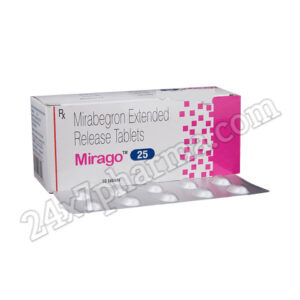

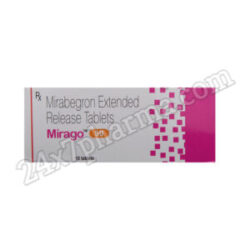

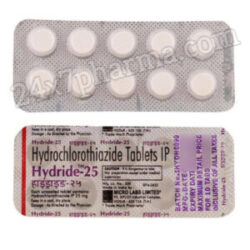

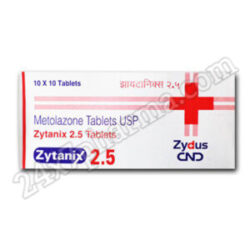

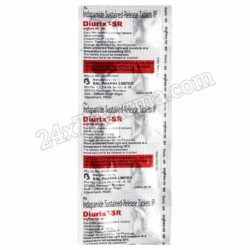
Reviews
Clear filtersThere are no reviews yet.